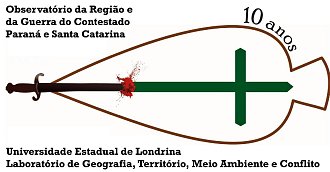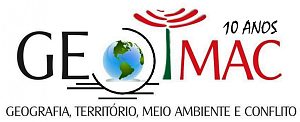Social cartography and affective maps: a methodological proposal for social policies
DOI:
https://doi.org/10.5433/got.2023.v9.48840Keywords:
Social cartography, Affective maps, Territory, Social politics, Social assistanceAbstract
Social cartography techniques can be allied to territorial management in social policies when developed in cooperation with public service workers and the population served by them. The use of cartographic technologies incorporated into interdisciplinary methods has facilitated the understanding of territorialities and promoted the improvement of studies of subjectivities. The public services that operate in the territory need tools that help the elaboration of more accurate diagnoses with the reality of the population, as well as, they lack qualitative information to understand more complex contexts in view of the particularity of the services. In this sense, we seek to develop a methodological proposal using social cartography practices and affective maps in order to enable, through the techniques of investigating feelings and emotions, the production of cartographic representations that allow the spatial visualization of the expressions of esteem of people in in relation to their places of life. This mapping proposal follows criteria that transform qualitative data into quantitative ones, aiming to meet the demands of social policies in a functional and practical way, supporting decision-making with more specific and particular elements of each territory where the population lives.
Downloads
References
ALENCAR, H. F.; BOMFIM, Z. A. C.; BARROCAS, R. L. L. Epistemologia ambiental na psicologia: pela emergência de um saber complexo. In: CONFERÊNCIA INTERNACIONAL DOS SETE SABERES, 2010, Fortaleza. Anais... Fortaleza: UECE, 2010. Disponível em: http://www.uece.br/setesaberes/anais/pdfs/trabalhos/1111-07082010-172645.pdf. Acesso em: 03 ago. 2023.
BOMFIM, Z. A. C. Cidade e afetividade: estima e construção dos mapas afetivos de Barcelona e São Paulo. Fortaleza: UFC, 2010.
BOMFIM, Z. A. C. et al. Affective maps: validating a dialogue between qualitative and quantitative methods. In: MIRA, R. G.; DUMITRU, A. (Ed.). Urban Sustainability: innovative spaces, vulnerabilities and opportunities. Coruña: Institute of Psychosocial Studies and Research "Xoan Vicente Viqueira", 2015. p. 131-148.
CORRALIZA, J. A. Emoción y ambiente. In: ARAGONES, J. I.; AMÉRIGO, M. (Coord.). Psicología ambiental. Madrid: Pirâmide, 1998. p. 281-302.
CUNHA, Caio Cezar. Proposta de readequação da abrangência territorial dos Centros de Referência da Assistência Social (CRAS) de Londrina-PR. 2014. 39 folhas, Trabalho de Conclusão de Curso (Bacharelado em Geografia) - Universidade Estadual de Londrina, Londrina, 2014.
CUNHA, Caio Cezar. Vigilância socioassistencial e informação geográfica no município de Londrina - PR. 2018. 115 p. Dissertação - Universidade Estadual de Londrina, Londrina, 2018.
ESPINOSA, B. Ética. Trad. Tomaz Tadeu. 2ª Ed. Belo Horizonte: Autêntica, 2008.
FALS BORDA, Orlando. Investigacion participativa y praxis rural: nuevos conceptos en educación y desarrollo comunal. Mosca azul editores, 1981.
KAWAMOTO, M. T. Análise de técnicas de distribuição espacial com padrões pontuais e aplicação a dados de acidentes de trânsito e a dados de dengue de Rio Claro-SP. 69 f. Dissertação (mestrado) - Universidade Estadual Paulista, Instituto de Biociências de Botucatu: Botucatu, SP, 2012.
LAKOFF, G. Metáforas de la vida cotidiana. Madri: Catedra, 1980.
LANDER, Edgardo. Ciências sociais: saberes coloniais e eurocêntricos. In: A colonialidade do saber: eurocentrismo e ciências sociais. Perspectivas latino-americanas. Buenos Aires. CLACSO, 2005.
LYNCH, Kevin. A imagem da cidade. São Paulo: Martins Pontes, 1997.
OLIVEIRA, N. A. S. A educação ambiental e a percepção fenomenológica, através de Mapas Mentais, Revista eletrônica mestrado Educação Ambiental, v.16, jan/jun, 2006.
PINHEIRO, J. Q.; GÜNTHER, H; GUZZO, R. S. L. Psicologia Ambiental: área emergente ou referencial para um futuro sustentável? In: GÜNTHER, H.; PINHEIRO, J. Q.; GUZZO, R. S. L. (Org.). Psicologia Ambiental: entendendo as relações do homem com seu ambiente. 3. ed. Campinas, SP: Alínea, 2014. p. 5-13.
QUIJANO, Aníbal. Colonialidad y modernindad/racionalidade. Revista Perú Indígena. 13(29): 11-20, 1992 RJ: Vozes, 1999.
SAWAIA, Bader, B. Família e afetividade: a configuração de uma práxis ético política, perigos e oportunidades. In: ACOSTA, Ana Rojas & VITALE, Maria Amalia F. (org.). Família: redes, laços e políticas públicas. 5ª ed . São Paulo: Cortez; Coordenadoria de Estudos e Desenvolvimento de Projetos Especiais PUC SP, 2010. p. 39- 50.
SOUZA, C. L. Cognição ambiental e as relações: mapas cognitivos, Ambiente Construído & APO. Textos do laboratório de Psicologia Ambiental, 1995, vol 4, nº 8. Instituto de Psicologia/ Universidade de Brasília.
VYGOTSKY, L. A formação social da mente. São Paulo: Martins Fontes, 1991.
WALSH, Catherine, y "¿Son posibles unas ciencias sociales/ culturales otras? Reflexiones en torno a las epistemologías decoloniales." Nómadas (Col) , no. 26 (2007):102-113. Disponível em: https://www.redalyc.org/articulo.oa?id=105115241011 Acesso em 06 de ago de 2023
Downloads
Published
How to Cite
Issue
Section
License
Copyright (c) 2023 Caio Cezar Cunha, Ideni Terezinha Antonello

This work is licensed under a Creative Commons Attribution 4.0 International License.
Aviso de Direito Autoral Creative Commons
1. Política para Periódicos de Acesso Livre
Autores que publicam nesta revista concordam com os seguintes termos:
- Autores mantém os direitos autorais e concedem à revista o direito de primeira publicação, com o trabalho simultaneamente licenciado sob a Licença Creative Commons Attribution que permite o compartilhamento do trabalho com reconhecimento da autoria e publicação inicial nesta revista.
- Autores têm autorização para assumir contratos adicionais separadamente, para distribuição não-exclusiva da versão do trabalho publicada nesta revista (ex.: publicar em repositório institucional ou como capítulo de livro), com reconhecimento de autoria e publicação inicial nesta revista.
- Autores têm permissão e são estimulados a publicar e distribuir seu trabalho online (ex.: em repositórios institucionais ou na sua página pessoal) a qualquer ponto antes ou durante o processo editorial, já que isso pode gerar alterações produtivas, bem como aumentar o impacto e a citação do trabalho publicado (Veja O Efeito do Acesso Livre)
- Os autores cedem à Geographia Opprrtuno Tempore, direitos exclusivos de primeira publicação, com o trabalho simultaneamente licenciado sob a Licença Atribuição-NãoComercial-
CompartilhaIgual 4.0 Internacional. Esta licença permite que terceiros façam download e compartilhem os trabalhos em qualquer meio ou formato, desde que atribuam o devido crédito de autoria, mas sem que possam alterá-los de nenhuma forma ou utilizá-los para fins comerciais. Se você remixar, transformar ou desenvolver o material, não poderá distribuir o material modificado



















